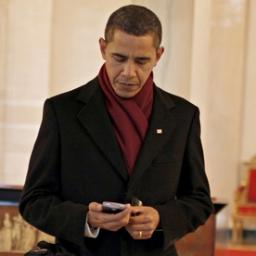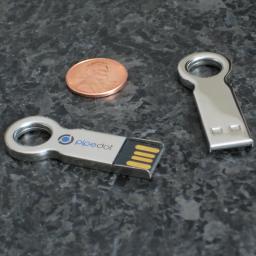In the Snowden era, it's pretty clear that the Internet as a worldwide communication medium that would permit activists to securely communicate and disseminate information has not been effective:
governments appear to be surprisingly and increasingly effective at clamping down on, censoring, controlling Internet information
as well as using it to track down dissidents. Mobile telephony isn't much better as it's a related technology that suffers many of the same ills as TCP/IP with regard to anonymity. So the privacy gurus are turning to a technology you'd probably forgotten:
Ham Radio .
Airchat, they call it, and
it's got a few characteristics that make it very interesting and useful . The group states:
The goal of the project is to communicate directly, without using Internet or cellular infrastructure. ... We traded bandwidth for freedom, simplicity and low cost.
It's not a fast protocol, since packet data over audio channels is necessarily low bandwidth. But its promise to offer real anonymity is a big deal. And not surprisingly, these enterprising hackers are having fun with it. For starters, to anonymise communications and handle encryption and error correction, the system uses a packet they call
the Lulzpacket .
Curious?
go check out the code for yourself on github .

Gone are the days of presidents with a rotary dial "
Big Red Phone " on their desk over which they can quickly negotiate to avoid nuclear Armageddon (
that phone was a myth , by the way). These days, phones are mobile, and though some world leaders carry a cellphone,
not every world leader has the same appreciation for tech .
Barack Obama's
love for his Blackberry is well documented, and former US Secretary of State Hillary Clinton even found herself the subject of a meme, "
Texts from Hillary ." But Benjamin Netanyahu
has no love for the culture of cellphones and picture sharing , exclaiming, "I'm the only one here without all these electronic devices, I'm a free man, and you all are slaves!"
Lastly, although the hermetically-sealed North Korea has until recently been mostly devoid of Internet and cellphone tech, Kim Jong Un is
preparing a state-sponsored cellphone for the North Korean people , that runs a severely locked down version of Android.
Do world leaders - or any kind of leaders - need a cellphone in their pocket? Is it a liability or a way to stay connected? Is it time for the politically powerful to get with the modern age? Or should they have assistants at their side who do that for them? And of course, the most important question:
Android, Blackberry, iOS, or something else ? :)

As a promotion and a small thank you to the contributers, I am pleased to announce... a free USB drive sporting the Pipedot logo! Although this site is still pretty small, a dedicated few of you have really stepped up and helped submit stories, post comments, and moderate. If you have received an email from me about a drive, simply respond with your shipping info and I'll send you one!
The drive is a
modern all metal design with a convenient ring handle. The capacity is four gigabytes and comes preformatted as FAT32 - but otherwise blank. The drive is bootable; and I've used one this week to load Ubuntu 14.04 on a few computers. With a
14.3 MB/s average read and 2.6 MB/s average write speed, it's not going to win any speed competitions, but it sure looks sexy.
 Extremetech reports :
Extremetech reports :
